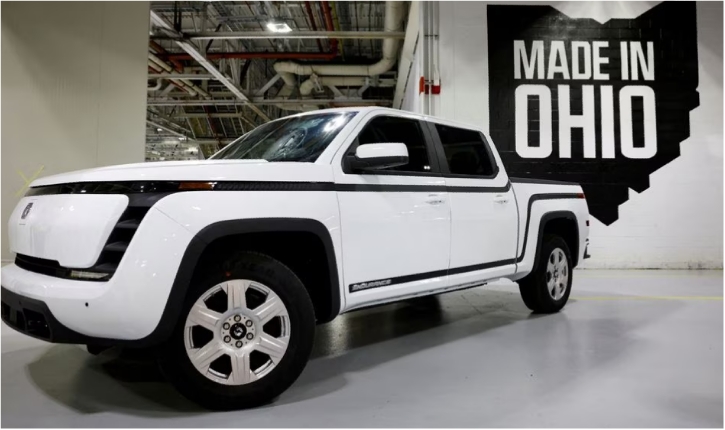
In the rapidly evolving world of electric vehicles (EVs), U.S. startups find themselves grappling with the impact of Tesla’s price war as they gear up to disclose their quarterly results. The struggle is not limited to startups, as traditional automakers like Ford Motor are also feeling the pinch and facing financial losses in the EV market. This challenging environment has given rise to a funding drought, making it even harder for these startups to stay afloat.
Among the startups, Lucid and Nikola are expected to face continued cash burn as they wrestle with the complexities of production and demand in the EV space. Their quarterly reports will shed light on how they are managing their financial situation amid these challenges.
However, one standout performer in the field is Rivian Automotive, which boasts Amazon’s backing. Rivian is projected to reveal a remarkable surge in revenue for the April-June quarter. Even more promising, the company has managed to slow down its cash outflow and improve gross margins. Rivian’s competitive advantages have not gone unnoticed, as it attracts new buyers for its pickup trucks. Analysts have responded positively to the company’s prospects, raising their price targets for its stock.
For Lucid, majority-owned by Saudi Arabia’s Public Investment Fund, the road ahead may be more challenging. The company is expected to report increasing losses attributed to supply-chain problems. Nevertheless, Lucid’s cash balance is anticipated to rise following a substantial $3 billion fundraise.
On the other hand, Nikola’s path seems uncertain, especially after issuing a going-concern warning in May. The company is likely to report a decline in revenue and widening losses. Despite efforts to cut costs through layoffs and liquidation, Nikola’s funding needs remain a cause for concern among analysts.
In contrast, Fisker appears to be on a promising trajectory, boasting healthy cash reserves and ambitious profitability goals. The company is set to announce its first revenue from vehicle sales after delivering its Ocean SUVs in the June quarter. However, a parts shortage has led to missed production targets, which could impact investor sentiment.
Investors will be closely scrutinizing Fisker’s reservation numbers, given that the Ocean SUV does not qualify for the $7,500 federal tax credit. As the EV startups navigate these challenging times, Tesla’s ongoing price war continues to exert significant influence on the market. The funding landscape remains a critical concern for these companies as they strive to establish themselves in a competitive and evolving industry.
